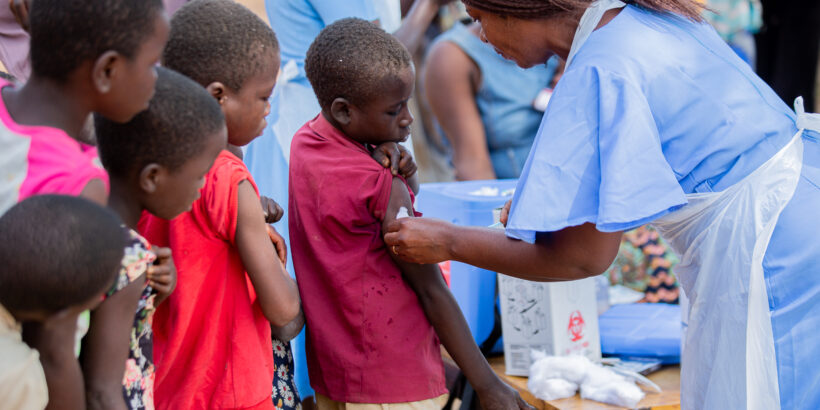Pour lire ce blog en français, veuillez cliquer ici
What we know:
Typhoid conjugate vaccines (TCVs) are recommended and prequalified by the World Health Organization (WHO). Previous data show a single dose of TCV is safe and 78% effective against typhoid and provides strong protection for at least 4 years among children aged 9 months to 12 years. Compared to older children, lower immunogenicity is observed in children younger than two years of age in Africa and Asia.
What we are learning:
How long does TCV immunity last? Data on long-term protection from TCV and the need for, and timing of, a booster dose in young children are limited.
Data from a new study in Malawi—the first to evaluate long-term immunogenicity of TCV in Africa and the first to examine a booster dose four years after initial TCV vaccination at 9 to 11 months of age—just published. We enrolled 136 children from a large randomized, controlled study led by Malawi-Liverpool-Wellcome Programme (MLW) and assessed immune responses.
Children in this study were initially vaccinated with Typbar TCV®, a Vi polysaccharide conjugated to a nontoxic tetanus toxoid (Vi-TT), or a control vaccine. While Vi-TT immunogenicity declined rapidly between day 28 and two plus years after vaccination, the decline slowed from two to four years post-vaccination and remained higher than in children who received the control vaccine. At five years of age, children either received their first dose (original control group) or a booster dose (original TCV group) of Vi-TT. Both groups had robust immune responses; the booster group had a higher response than the initial response at 9 to 11 months and was higher than a first vaccination at five years of age in Malawian children. A bonus, Vi-TT vaccination also boosted tetanus antibody levels, offering greater protection against tetanus.
Typhoid is a risky and potentially deadly disease for children in endemic areas, such as Malawi. We have TCVs, a safe and cost-effective tool against typhoid that can protect children living in high-risk countries, especially those with increasing climate disasters, extreme weather events, and growing rates of drug resistance.
Currently, the WHO recommends a single dose of TCV. When the WHO reconvenes its Strategic Advisory Group of Experts on Immunization (SAGE), they will weigh a range of factors including typhoid incidence, drug resistance, and the peak age of infection, among others, when considering whether to revise the current recommendation. A robust booster response to TCV at five years of age—following primary vaccination at 9 to 11 months of age—will inform decisions on booster dose schedules for countries introducing TCV into routine immunization programs. These data, along with more booster studies in additional settings, information on local typhoid epidemiology, drug resistance, logistical considerations, and cost-effectiveness, are crucial for policy decision-making. These results offer the promise of saving lives and informing decision-makers how to prioritize TCV introduction to take on typhoid.
Cover photo: Children receive TCV during Malawi’s introduction campaign in 2023. Credit: TyVAC/Madalitso Mvula



